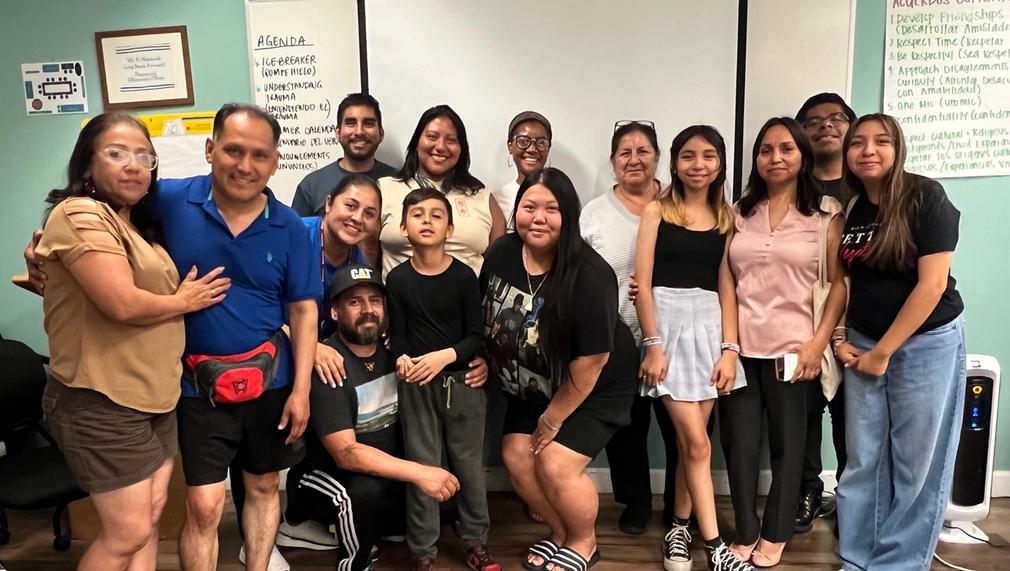Social Housing for Long Beach
Social Housing for Long Beach is a multigenerational and multicultural project with the goal of shifting local policy and revenue in the City of Long Beach to create housing that is community-owned, permanently affordable to all income levels, and environmentally sustainable.

What is the primary issue area that your application will impact?
Affordable housing and homelessness
In what stage of innovation is this project, program, or initiative?
Pilot or new project, program, or initiative (testing or implementing a new idea)
What is your understanding of the issue that you are seeking to address?
Long Beach is the 4th most rent-burdened city in the nation with over 60% of residents renting their homes. 80% of very low-income renters are rent-burdened by paying more than 30% of their income on rent. Over half of all Black and Latino renters in the city are rent-burdened, with low-income families and single mothers disproportionately impacted. The inability to build wealth along with the high cost of home ownership continues to keep many families in poverty. Even as we bring unhoused neighbors into permanent homes, the affordability crisis continues to push others into homelessness. Beyond affordability, Long Beach suffers from an aging housing stock. More than 80% of housing units in Long Beach are more than 50 years old. A large portion of housing is in need for rehabilitation and repair, and will continue to struggle to adapt to the infrastructure needed to make our communities environmentally sustainable and meet our citywide climate change and adaptation goals.
Describe the project, program, or initiative this grant will support to address the issue.
Social Housing in Long Beach is a community-led project with the goal of shifting local policy and revenue in the City of Long Beach to create social housing: housing that is community-owned, permanently affordable to all income levels, and environmentally sustainable. The project is led by a core team of youth and adult renters who will draw upon their own experiences advocating for affordable housing developments and tenant protections in addition to learning from best practices from other communities in California advancing proven social housing solutions like Community Land Trusts and local policies for decommodified housing. By collaborating together using community organizing and leadership development strategies, the core team will lead participatory community research and ground-truthing to identify housing and community needs. The core team will use the data and stories for culturally-relevant popular education efforts on social housing and to educate people about the root causes of housing instability (including to Spanish and Khmer-speaking communities). Towards the end of the grant period, the core team with the input of community supporters will collaborate with city leadership to design policy solutions and models that help create and fund social housing in Long Beach to ensure the voices and ideas of communities directly impacted by the housing and homelessness crisis are included.
Describe how Los Angeles County will be different if your work is successful.
Long Beach is the second largest city in LA County and plays an influential role in shaping social and economic policy throughout the region. In the short term, the project seeks to build community knowledge and support for social housing as a transformative and bold solution to our ongoing housing crisis within Long Beach. The project will be a multiyear effort ranging from 3-5 years based on the policies developed by leaders. The long term goals are to improve housing stability for low-income neighborhoods, economic security for individuals and families, and overall community wellbeing in the region. Working in tandem with our housing and environmental justice partners across LA County, the project will contribute to the federal government’s climate and decarbonization goals and the LA Housing Movement Lab’s shared goal of decommodifying 20% of housing by 2050 and ensure Long Beach is included in these efforts–two ambitious goals that will transform LA County for generations to come.
What evidence do you have that this project, program, or initiative is or will be successful, and how will you define and measure success?
Acknowledging that this will be a multi year project, success in the first year will be measured by recruiting 250 community supporters through direct outreach and 1-1 conversations, hosting 10 community workshops to educate community members on social housing policies, completing a community-based research process to develop a written understanding of community needs, and beginning meetings between city staff and core leaders to build relationships. Contact information and zip codes from community members recruited and involved will be recorded to support leadership development efforts as the project uses base building strategies to build a broad base of supporters and directly impacted community members to sustain the project over the long term. All materials and tactics will be produced in English, Spanish, and Khmer to ensure information is accessible and community members are comfortable engaging regardless of their native language.
Approximately how many people will be impacted by this project, program, or initiative?
Direct Impact: 300.0
Indirect Impact: 900.0